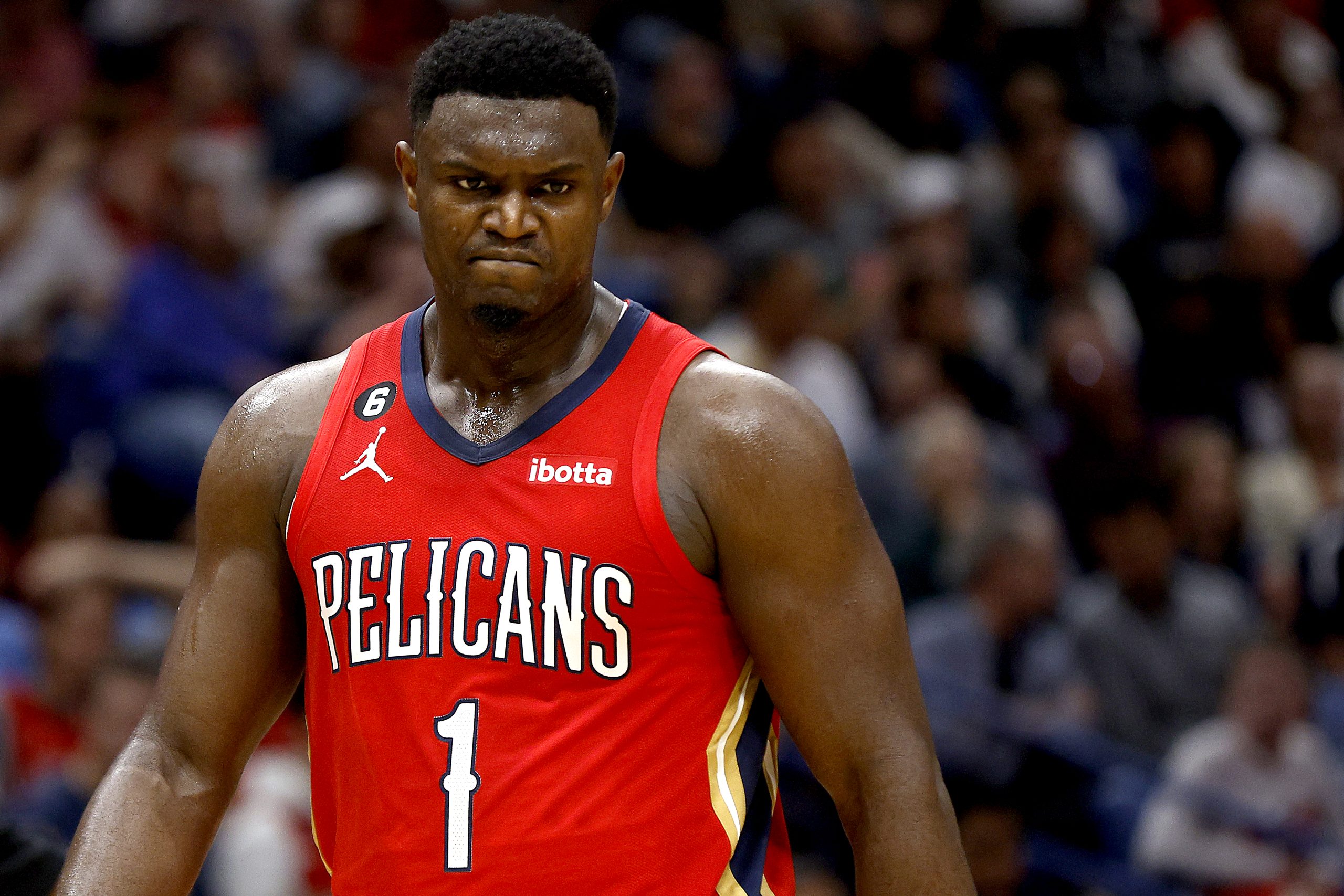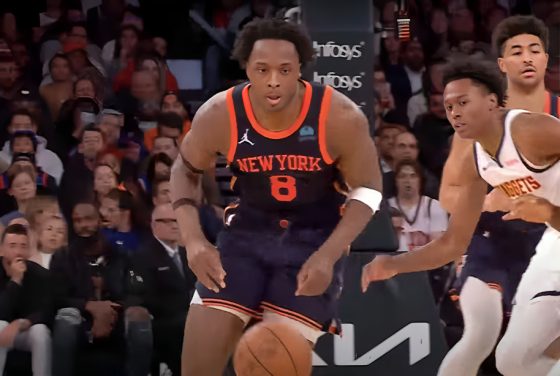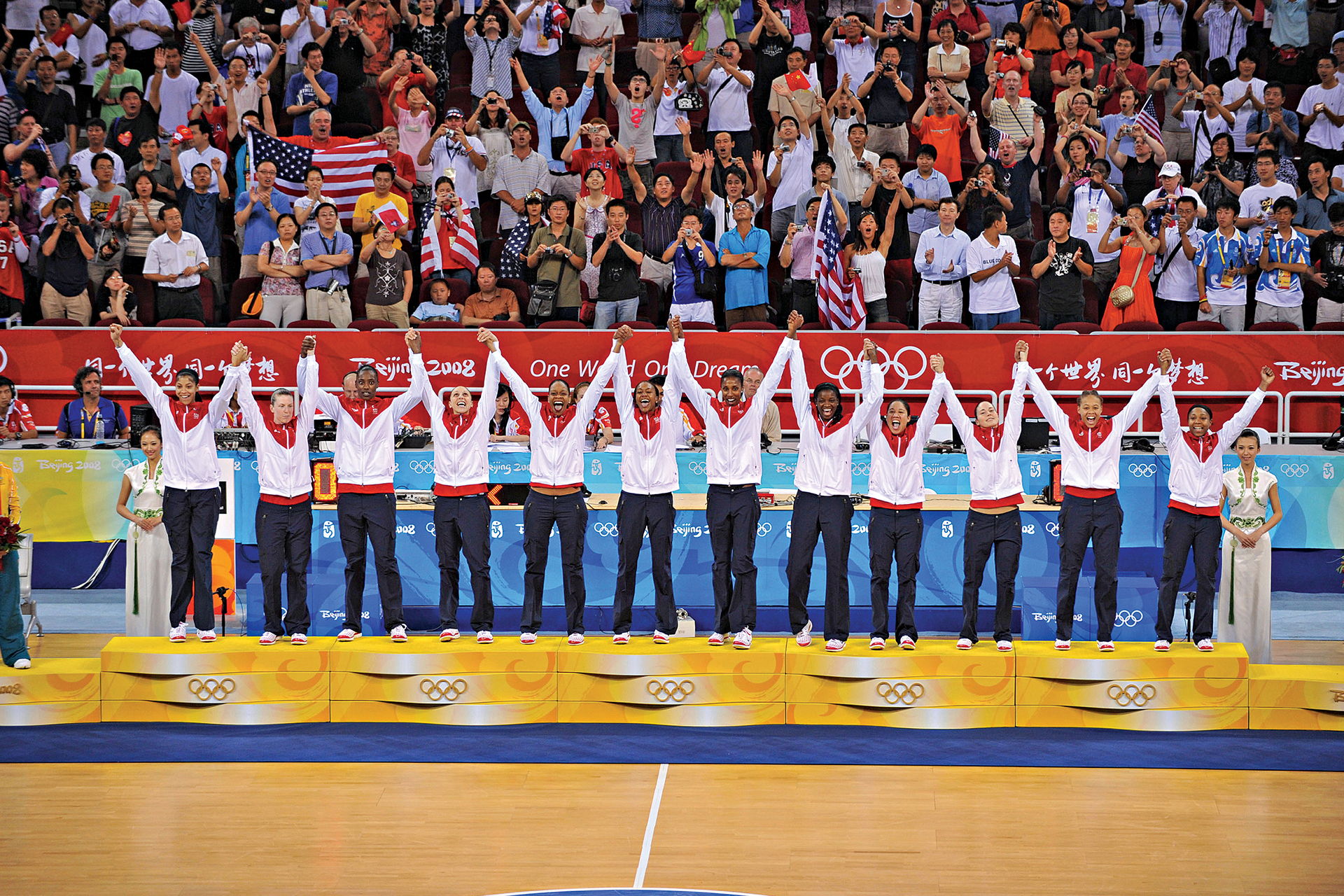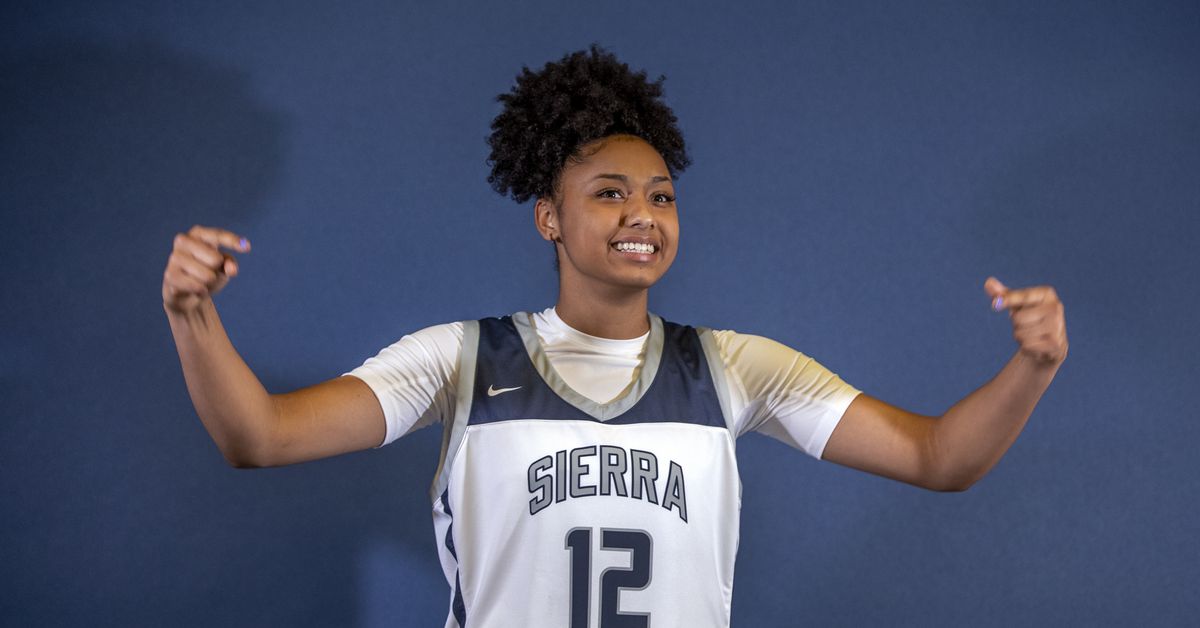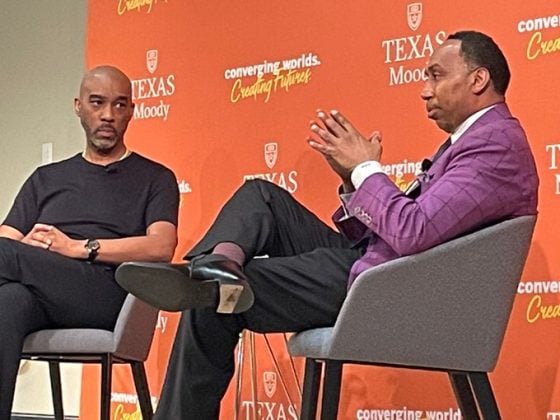For three decades we’ve covered many amazing basketball characters, but some stand above the rest—not only because of their on-court skills (though those are always relevant), but because of how they influenced and continue to influence basketball culture, and thus influenced SLAM. Meanwhile, SLAM has also changed those players’ lives in various ways, as we’ve documented their careers with classic covers, legendary photos, amazing stories, compelling videos and more.
We compiled a group of individuals (programming note: 30 entries, not 30 people total) who mean something special to SLAM and to our audience. Read the full list here and order your copy of SLAM 248, where this list was originally published, here.
The process for “discovering” a high school basketball player changed a lot in the social media era.
To set some context: it used to be way different. In the ’80s, ’90s, even early ’00s, you’d read about an up-and-coming player in a newspaper or a magazine, then catch glimpses of them on television if somehow possible (though likely not until they hit the college ranks). You mostly saw very little—a small article here or there with a short text description and a photo; in some extreme examples, some decent footage on a sports highlight television show; and in some super-extreme examples, a magazine cover, the ultimate stamp.
Then came the internet, then Facebook, Twitter, Instagram, all that. Pretty soon everyone had a camera in their hands 24/7, which meant that when a high school basketball player did something amazing, it immediately hit the internet, and if it was really amazing, it immediately went viral.
In 2017, Zion Williamson went viral damn near every other day. He was a junior forward out of South Carolina with a combo of flight—he could soar up to eye-level with the rim and just sort of hang out there for a few seconds—and power—he was built like a linebacker and dunked with such ferocity it shook the gym and caused a frenzy amongst the kids in the stands—that made every one of his dunk clips, which flew around social media at light speed, a must-watch.
At the time, the world had started to move with such tempo that on Zion’s game nights, those highlights were viral by the time he woke up the next morning. So where did that put SLAM, a publication with a history of “introducing” players like Zion to the world?

It was a question I thought about a lot at the time. I had become Editor-in-Chief the year before, a role I earned in part because of my ability to help SLAM compete in the hyperspeed media universe. And though the answer would continue to change (and still changes often to this day), at the time it was simple: we’re going to put him on the cover and we’re going to tell his story properly, show people the real Zion.
SLAM 210 was Zion’s first magazine cover shoot. By the time the cover dropped, everyone knew his name (from Instagram), but this was the first time the audience actually heard from him directly. We had an interview with a “longform” video (like, three minutes) and a slew of beautiful, crispy photographs, which I half-joked at the time were the first look anyone got of Zion’s face outside of blurry camera phone footage.
That content was the result of a day spent with Zion and his family in Spartanburg, SC, where they’re from. There’s a mural in the middle of the city that says “THERE’S ONLY ONE SPARTANBURG,” and Zion’s stepfather bolted a basketball hoop to the middle of the mural for our photos. The images of Zion would become iconic in a different way than, say, a 2001 magazine cover would’ve, but in their own new-age way. Months later, when every college fan base was photoshopping Zion in their favorite team’s jersey, they meme’d our cover photo almost exclusively. Two years later, when Zion was drafted and signed with Jordan Brand, the company bought the rights and used that same photo—funny because of the many adidas logos they had to scrub and replace to make that work. The photo looked great, though, and was still the best visual representation of Z more than two years after the initial shoot.
We continued to cover Zion extensively following that shoot. His season at Duke was a blast, and we shot a great cover with him for SLAM 222—The Future Issue—right before he was drafted in 2019 to the New Orleans Pelicans. He teamed up with SLAM favorite Lonzo Ball, so we shot another cover, a group shot that also included Brandon Ingram and Jrue Holiday. Fast forward to summer 2020, post-Covid explosion but pre-Bubble, we rented an Airbnb-turned studio, masked up and shot a cool cover with Z to hype up the forthcoming return of the NBA. A few years later, in early 2023, we celebrated the then-surging Pelicans with a Pen & Pixel-style cover featuring Zion, Ingram and CJ McCollum. And then last summer he got another front page, posing on KICKS 26 alongside fellow Jordan Brand endorsees Jayson Tatum and Luka Doncic.
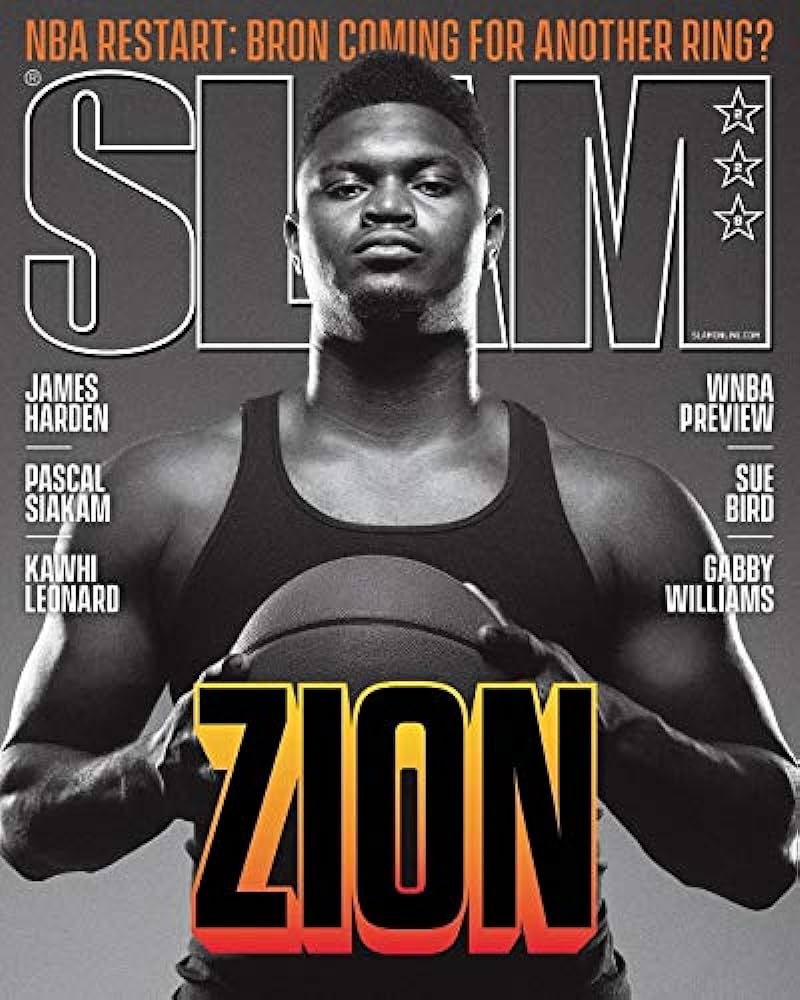
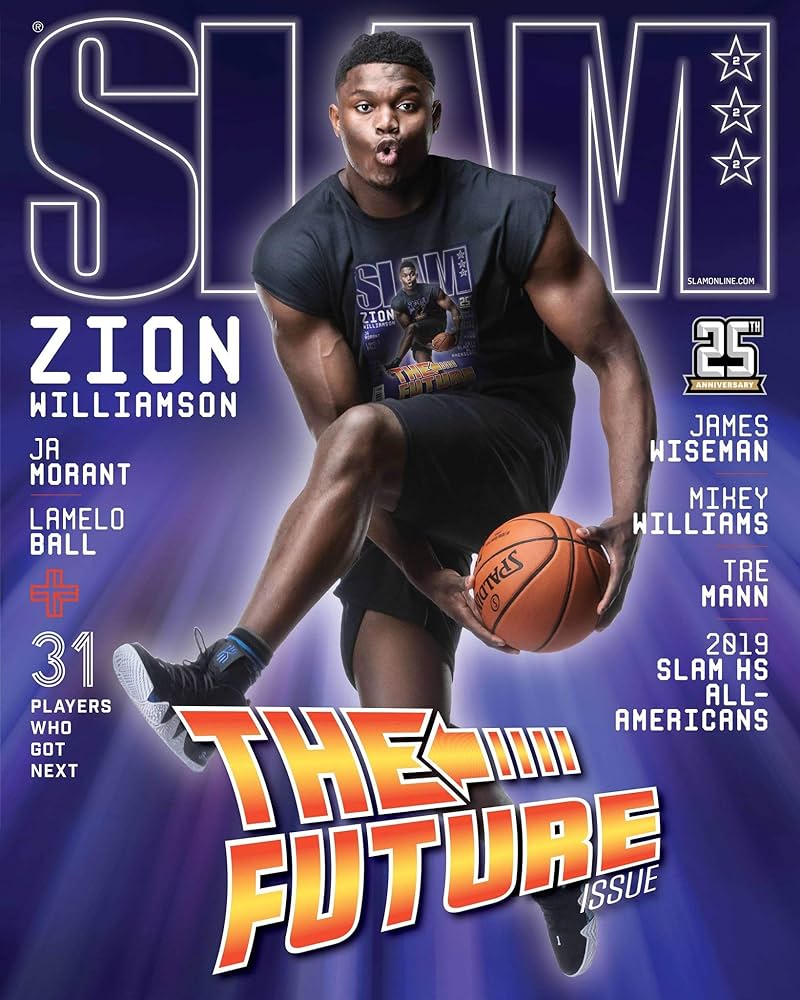
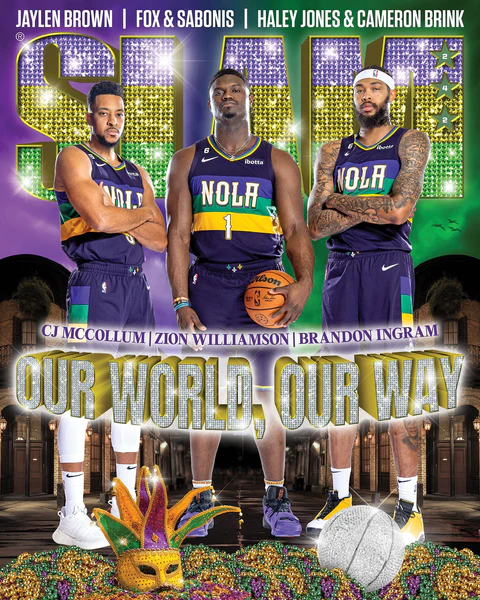
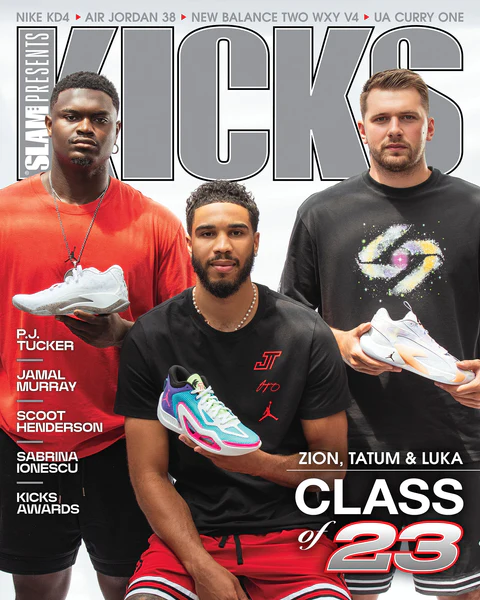
As I’m typing this, Zion Williamson is just 23 years old, and though it seems like he’s been around the scene forever, his career is really still in its early chapters. He didn’t rocket to immediate NBA dominance, but some of the chatter about him not performing is just nonsense; he’s a two-time All-Star who’s averaged over 25 points and 6 boards per game while maintaining a 60 percent (!) field goal percentage. It’s already been incredibly impressive, and again—he’s 23!
There’s an anecdote in my cover story from 2017 that explains what it was like to watch Zion work out in an empty gym, how it felt like each dunk literally shook the room, the sound of the ball smashing through the hoop reverberating off the walls. That intense, seemingly out-of-nowhere, shake-the-room energy—if a sound could be a mission statement, in that moment, Zion produced SLAM’s. Bold, powerful, striking…for us, it was a North Star in the form of a sound wave. We chase that feeling with our content—our covers, our videos, our photos, our stories—every day, and that shoot crystallized it for me. Plus, it helped me figure out what SLAM’s place in the lightning-fast media landscape should be. It looks different than it used to, but we still stand head and shoulders above the competition because of our elite storytelling and the credibility that a SLAM co-sign provides.
So yeah—we’re Team Zion. Forever.
Portrait by Zach Wolfe. Photo via Getty Images.



